Premium Only Content
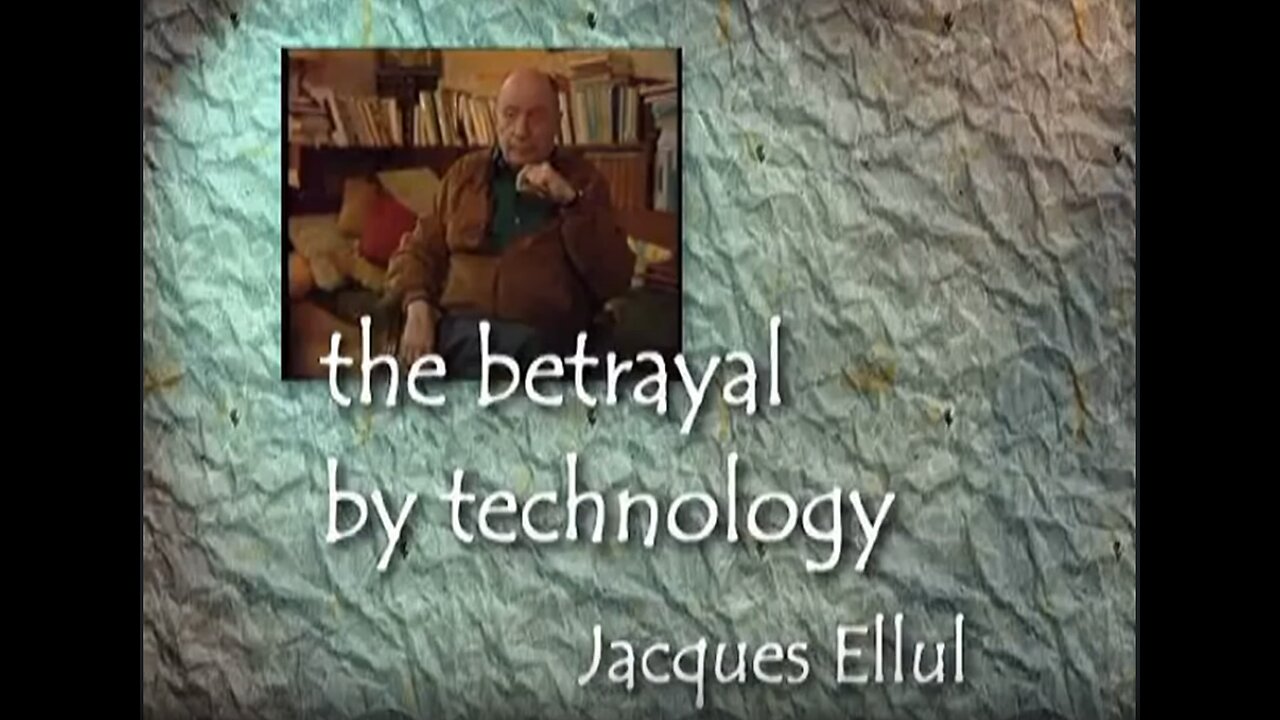
The Betrayal by Technology, A Portrait of Jacques Ellul (1992)
This interview with French theologian/sociologist Jacques Ellul was produced by Rerun Productions in Amsterdam. https://rerunproducties.nl
Ellul discusses how the technological society differs from previous societies, how it leads to a breakdown of ethics and indigenous worldviews.
.
Source
https://www.youtube.com/watch?v=BOCtu-rXfPk
-
"We are rapidly approaching the time when there will no longer be any natural environment at all" (Ellul, p. 79).
.
"There is no longer respite for reflecting or choosing or adapting oneself, or for acting or wishing or pulling oneself together. The rule of life is: No sooner said than done. Life has become a racecourse...a succession of objective events which drag us along and lead us astray without anything affording us the possibility of standing apart, taking stock, and ceasing to act" (Ellul, p. 330).
.
"The term technique, as I use it, does not mean machines, technology, or this or that procedure for attaining an end. In our technological society, technique is the totality of methods rationally arrived at and having absolute efficiency (for a given stage of development) in every field of human activity."
.
"The great preoccupation of the Greeks was balance, harmony and moderation; hence, they fiercely resisted the unrestrained force inherent in technique and rejected it because of its potentialities" (Ellul, p. 28-29).
'The Technological Society' by Jacques Ellul
https://archive.org/details/JacquesEllulTheTechnologicalSociety/mode/2up
'Propaganda: The Formation of Men's Attitudes' by Jacques Ellul
https://archive.org/details/Propaganda_201512/mode/2up
-
A Biography of Jacques Ellul (1912–1994)
https://ellul.org/life/biography/
by Patrick Chastenet
Jacques Ellul adhered to the maxim “think globally, act locally” throughout his life. He often said that he was born in Bordeaux by chance on January 6, 1912, but that it was by choice that he spent almost all his academic career there. After a long illness, he died on May 19, 1994, in his house in Pessac just a mile or two from the University of Bordeaux campus, surrounded by those closest to him. Not long before his death, the limitations of the treatment for this illness confirmed to him once again one of his favorite themes: the ambivalence of technological progress.
Although he was deeply attached to the Aquitaine region in southwestern France, his cosmopolitan roots produced a deep dislike of any nationalistic feeling. His paternal grandmother was Serbian, a descendant of the Obrenovic’ family, his grandfather was Italian but came from Malta, and his father, who was from Trieste, was both an Austrian citizen and a British subject. His mother was the daughter of a French woman and a Portuguese man named Mendès.
Their paths converged in Bordeaux where Jacques Ellul’s father, after his studies in Vienna, was recruited to be a representative of Louis Eschenauer wine merchants. His mother taught art in a private school, while his father found himself unemployed on several occasions because of his uncompromising personality that placed honor above all other considerations.
Ellul’s childhood was poor but happy. He was brought up to be committed to the aristocratic virtues. In high school (at the Lycée Longchamp, now the Lycée Montesquieu), he was at the top of his class. When he finished his homework, his mother would allow him to wander freely around the docks in Bordeaux or the marshlands of Eysines.
The family lived near the Jardin Public (one of the Bordeaux city parks), where he and his public school classmates regularly fought Homeric battles with the boys from the private Catholic school. This did not prevent him from later becoming an advocate of “non-violence” or, more precisely, “non-power.”
Ellul excelled in Latin, French, German, and history, and at the age of seventeen obtained his baccalauréat (college preparatory high school diploma) at the Lycée Montaigne. He wanted to be an officer in the navy, but his father made him study law instead. Although Jacques Ellul may not yet have been converted to Christianity when he first went to the University of Bordeaux (his faith took some time to develop its final form), on August 10, 1930, God appeared to him in a vision that forever after he modestly refused to describe. Two further decisive encounters took place during his student years, one with Bernard Charbonneau and the other with his wife, Yvette, with whom he had four children: three boys, Jean, Simon, and Yves, and a daughter, Dominique.
Ellul and his friend Charbonneau (Ellul would have us believe that he was no more than his friend’s bright sidekick) elaborated a Gascon variant of personalism (the social philosophy associated with Emmanuel Mounier), the originality of which is only now beginning to be appreciated by historians of ideas. True pioneers of political ecology, the two men carried out a “libertarian/anarchist”-inspired critique of modern society. Jacques Ellul wanted Esprit (the publication edited by Mounier) to be the voice of a truly revolutionary movement, regionally rooted and based in small, self-directed groups, rather than a mere Parisian intellectual publication. He eventually broke off his relations with Mounier, notably criticizing the latter’s uncompromising Catholicism.
After obtaining his doctorate in 1936 with a thesis titled “The History and Legal Nature of the Mancipium,” Ellul began teaching at the Faculty of Law in Montpellier (19371938), before obtaining posts in Strasbourg and then Clermont-Ferrand.
He was dismissed by the Vichy government in 1940 because of his father’s status as a “foreigner,” and then went to live in the Entre-deux-mers area between the Garonne and Dordogne Rivers. There, in the little village of Martres, he was active in the Resistance and took up agriculture in order to feed his family. He later confessed that he was just as proud of harvesting his first ton of potatoes as he was of receiving his agrégation (the qualifying exam for university teaching) in Roman law (1943).
After the war, Ellul was briefly a member of the Bordeaux city administration (October 31, 1944 to April 29, 1945) but forever after steered clear of all party politics, except for an unfortunate episode as candidate for the Union Démocratique et Socialiste de la Résistance in October 1945.
Ellul did, however, wish to continue embodying his Christian concept of “presence in the modern world”—as distinct from the fundamentalist approach as from that of the liberation theologians. He held national office in the Reformed Church of France until 1970 but was never more than on the fringes of Protestant circles. From 1958 to 1977, he was president of a club for the prevention of juvenile delinquency and was also actively involved in the ecology movement, notably with the Committee for the Defense of the Aquitaine Coastline.
His active engagement in the events of the century nourished a considerable amount of writing: almost a thousand articles and fifty or so books translated into more than twelve languages. The Technological Society, the first volume of his trilogy on the subject, appeared in France in 1954. This book was discovered and promoted by Aldous Huxley, the English author of Brave New World, and brought him fame in American universities ten years later—a fact borne out by the hundreds of Californian students who came to study at the Institute of Political Studies until his retirement in 1980. Ellul was a demanding professor but open to discussion, knowing how to capture the attention of his audience without resorting to dramatic effects or giving in to fashion. He regularly taught classes on the technological society, propaganda, and Marx’s thinking or that of his various disciples (be they German, Italian, Russian, Chinese, or Czech).
He was an engaged thinker in the noblest sense, that is, a participant in all of the most essential debates of his time, and he did not hesitate to take up his pen to communicate with the general public by way of deliberately polemical articles published notably in Réforme, Quotidien de Paris, Ouest-France, and Sud-Ouest Dimanche.
His five-volume History of Institutions has been used by generations of French university students. The book he was proudest of, however, was Hope in Time of Abandonment.
It is impossible to separate the sociologist from the theologian in this polygraph whose tone was deliberately prophetic. As he told the newspaper Le Monde in 1981, “I describe a world with no exit, convinced that God accompanies man throughout his history.” The author of Living Faith (the French title literally reads, “faith at the price of doubt”), died with that certainty.
.
This short text is an abridged and provisional version of the biography of Jacques Ellul, written by Patrick Chastenet and translated by Lesley Graham.
-
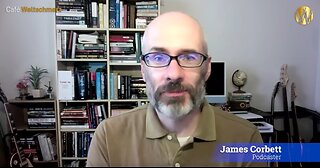 59:54
59:54
InnerLight
1 month agoJames Corbett: New World Order - Influence of Media, Technology and Ideology on our Future! - October 28, 2024
6613 -
 LIVE
LIVE
LFA TV
21 hours agoLFA TV CHRISTMAS EVE REPLAY
1,770 watching -
 4:33:48
4:33:48
tacetmort3m
1 day ago🔴 LIVE - THE ZONE KEEPS PULLING ME BACK - STALKER 2 - PART 15
54.4K12 -
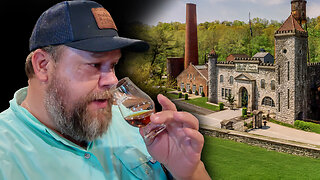 22:45
22:45
Brewzle
17 hours agoI Went Drinking In A Real Bourbon Castle
37.7K3 -
 48:36
48:36
PMG
1 day ago $2.69 earned"Parkland Parent Speaks Out On Kamala Harris Using Victims"
30.1K4 -
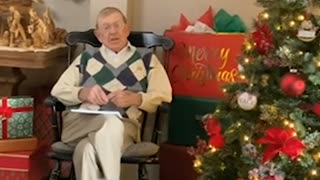 4:06
4:06
The Lou Holtz Show
16 hours agoCoach Lou Holtz’s Heartfelt Christmas Message 🎄 | Family, Faith & Notre Dame Spirit 💚 #christmas
22.3K -
![ROSEANNE BARR - Her Journey, TRUMP, and the MAGA GOLDEN AGE! [INTERVIEW]](https://1a-1791.com/video/s8/1/M/m/B/2/MmB2v.0kob.1-small-ROSEANNE-BARR-Her-Journey-T.jpg) 51:35
51:35
Dr Steve Turley
1 day ago $19.18 earnedROSEANNE BARR - Her Journey, TRUMP, and the MAGA GOLDEN AGE! [INTERVIEW]
57.2K54 -
 57:38
57:38
The Tom Renz Show
14 hours agoMerry Christmas - The Tom Renz Show Christmas
93.4K17 -
 2:59:10
2:59:10
Wendy Bell Radio
1 day agoThe Bridge Too Far
171K301 -
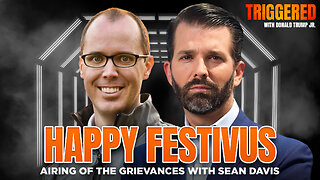 1:03:45
1:03:45
Donald Trump Jr.
1 day agoHappy Festivus: Airing Our Grievances and Stopping The Swamp w/Sean Davis | TRIGGERED Ep.201
430K549